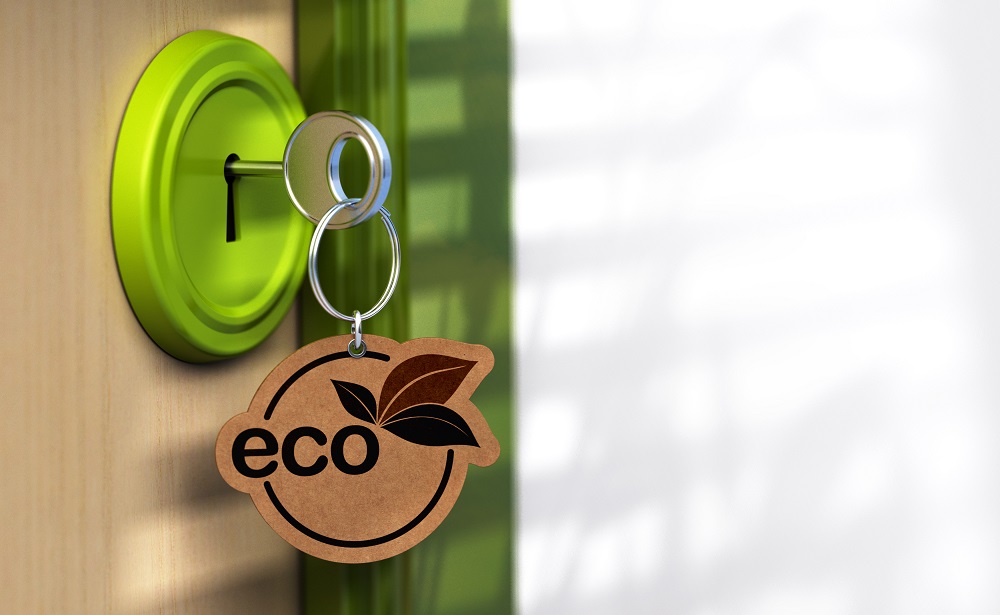Everyday the pressure to be proactive in response to changing climate conditions intensifies. Organized community protests are becoming more prevalent, corporations are actively reassessing their operations, and governments are declaring climate change emergencies. No one is absolved from the consequences of climate change, including the hotel industry. In fact, extreme changes in weather can wreak havoc on entire landscapes, potentially straining tourism and adversely affecting the number of guests vacationing and staying at hotels. With that being said, what can hoteliers do to be drivers in sustainability and lessen the toll their properties have on the environment?
Cloud-Based Software Solution
Simplifying the process by which a hotel conducts its operations is one of the most crucial aspects to successful hotel management. The implementation of a cloud-based software solution would achieve this because its capabilities make for more efficient and effective processes, while improving productivity at the same time. In addition, it also makes a measurable difference on the hotel’s energy usage, significantly cutting its environmental footprint. On average, the power usage of an on-premise system uses a lot more energy than what switching to the average cloud-based solution that can operate on a laptop or tablet, and does not require a bulky in-house server which utilizes even greater amounts of power. Investing in a cloud-based software system is also beneficial because its computational capabilities allow for advanced and mobile features like paperless billing, wastage tracking, and wireless servicing and support.
Waste Reduction
Unsurprisingly, North America produces about 168 million tonnes of food waste each year alone. Hotels are major contributors to this as poor stock control leads to more waste produced in kitchen preparation and stock spoilage as opposed to the food waste generated by guests. There are many ways to improve this problem, one of which is to employ technology to keep track of the food that is most often wasted which can help with better and more informed decision making. Moreover, leftovers are inevitable but can be managed by offering guests a takeout option on leftovers, offering staff meals, or by donating leftovers. Finally, implementing a composting system to the hotels daily operations is the best way to divert food waste that accumulates as it allows food to naturally decompose without the harmful effects that landfills have. On the off chance that the hotel contains gardens, compost can be used as a rich fertilizer to enhance the hotels appearance.
Water
For most hotels, the greatest source of their environmental footprint is the water and energy used to provide guests with the feeling of luxury living. To address this, hotels should consider offsetting extreme water usage with an investment in low-flow shower heads, toilets, and sinks. The advantage of this is significant savings and at the same time hoteliers don’t have to compromise on the luxury quality they strive to deliver to guests. Hotels should also implement programs that allow guests to reuse their towels and linens as opposed to washing and changing them every day. Besides this, many innovations exist that reduce the energy and water consumed in the linen cleaning process, a prime example of this is the ozone laundry system which cuts hot water consumption by 85% and uses ozone molecules to clean laundry.
Conclusion
Hotels can be highly wasteful if not managed correctly, as they are properties that are meant to allow guests to take advantage of the amenities it offers without thinking about the consequences. It will no doubt prove to be extremely challenging for the hotel industry as a whole to adapt and reduce its environmental footprint. However, with the emergence of sustainable tourism, visitors are becoming more aware of the importance of lodging in a facility that meets higher environmental standards and are open to new hospitality experiences. Governments are also providing monetary incentives for hoteliers that practice sustainability. Not only do these alternatives have the ability to strengthen hotel management and efficiency, but it also increases the marketability of the hotel to the socially conscious consumer, so why not consider being a sustainable hotelier?



